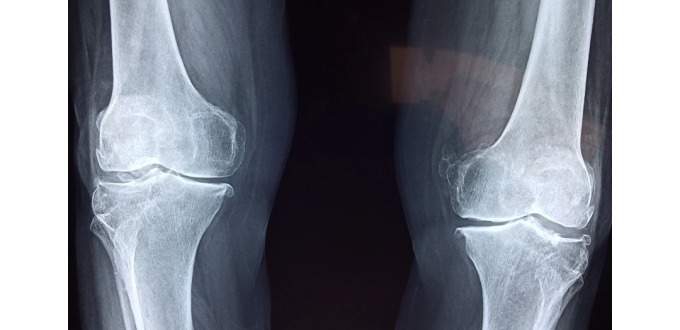What can you do to improve or maintain good bone health?
The best things you can do are exercise and make sure you are maintaining a bone healthy diet. Getting enough Calcium and Vitamin D is extremely important. Also important is making sure you are eating enough protein.
Trying to spread out both calcium and protein consumption throughout the day instead of at just one meal is beneficial for bone health. Eating enough protein throughout the day helps maintain muscle mass.
Foods rich in Vitamin D include egg yolks, cheese, salmon, tuna, mushrooms, some yogurts, milk and orange juice that say they are fortified with Vitamin D on the label.
Foods high in calcium include dairy (cheese, milk, yogurt) and leafy greens (kale, spinach, and broccoli). Cereals, oatmeal and juice will say if they are fortified with calcium.
Omega-3 fatty acids also promote formation of new bone and protect against bone loss. Examples include chia seeds, flax seeds and walnuts.
Magnesium and Zinc also help maintain bone density during the aging process.
Examples of Magnesium include dark chocolate, avocado, almonds, cashews, and legumes (beans, chick peas, lentils), and leafy greens.
Examples of Zinc include shrimp, beef, flax seed, pumpkin seed, spinach and oysters.
What exercises are best for strengthening bones and preventing Osteopenia or Osteoporosis?
Weight bearing exercises which means exercises where your bones are supporting your weight and you work against gravity. Some examples of weight bearing exercises are walking, hiking, racquet sports, push ups, planks, squats, step ups, etc. Although swimming, water exercises and biking are great for your health, they are not considered weight bearing.
Strength training using resistance bands or weights is also beneficial to prevent bone loss and increase muscle mass.
Balance training is also important to prevent falls. With weakened bones an injury from a fall can be more severe and take longer to heal.
Also talk to your doctor. If you are unsure of your bone density or would like to find out if you have Osteopenia or Osteoporosis a simple and painless bone density scan ( also called a DEXA scan) can be done.
What is the difference between Osteopenia and Osteoporosis?
Osteopenia is when you have a lower bone mineral density for your age. Osteopenia usually has no signs or symptoms but can be found with a bone density scan. Osteoporosis is when you have more severe bone density loss which weakens bones and increases risk of fractures. Both Osteopenia and Osteoporosis are most common in women over the age of 50.
Osteopenia can sometimes progress to Osteoporosis but not always. There are ways to prevent it and strengthen your bones. Bone density naturally decreases each year as we age but can decrease more rapidly due to certain medical conditions, medications, hormonal changes with menopause and/or an unhealthy lifestyle.
If you have questions about maintaining or improving bone health through exercise contact A to Z Personal Wellness. As for a bone healthy diet, I love making smoothies with bone healthy ingredients:)

